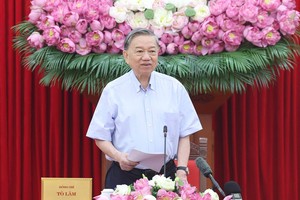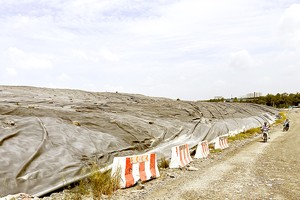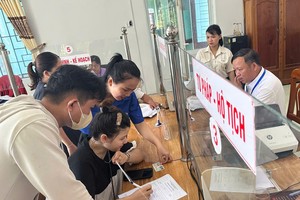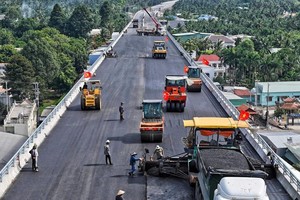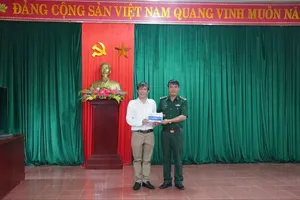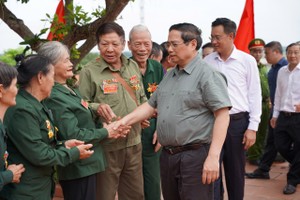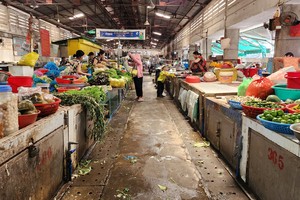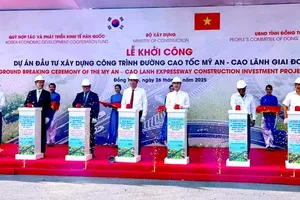Prime Minister Nguyen Tan Dung has called on all ministries to maintain macro-economic stability, prevent high inflation, and aim for economic growth of 6.5 percent in 2010.
He announced the directives at the closing meeting of a three-day monthly Government session that ended in Hanoi on April 1.
1st quarter GDP rises by 5.83 percent
The meeting agreed that thanks to various financial and export measures, the county’s economy is continuing its pace of recovery.
The economy expanded by 5.83 percent in the Jan-Mar period, higher than the 3.14 percent growth seen in the same period last year. Industrial production rose by 13.6 percent; construction by 17.4 percent; agriculture, forestry and fishery by 5.8 percent; and services by 6.64 percent.
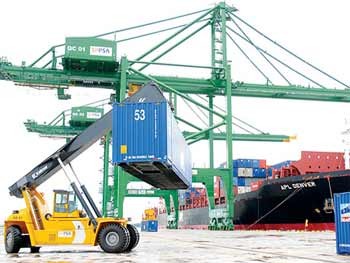
In the past three months, the consumer price index (CPI) increased by 4.12 percent while exports declined by 1.6 percent and imports sharply soared by 37.6 percent.
March saw foreigner arrivals in Vietnam soar by 56 percent from a year earlier, bringing the overall increase in the first quarter to 36.2 percent.
Investment development capital rose by 26.23 percent year on year, with the private sector achieving growth of 46.38 percent.
However, the Jan-Mar GDP growth rate is also the lowest in the past several years, while lending interest rates, especially negotiable ones, have sharply increased; credit growth has slowed; the trade deficit has remained large; and foreign investment in the country has declined, the Government said.
Meanwhile, increased prices of several key commodities may lead to high inflation in the future, Government officials added.
The efficiency of investment and trade has also remained low while competition has been getting fiercer in the global and domestic markets.
To address these issues, the Government has passed a resolution on restraining inflation, stabilizing the macro-economy, and maintaining growth.
No increases to petrol, oil prices
The Government has also asked the State Bank of Vietnam to lower lending interest rates so that enterprises can afford loans for their business development.
In addition, ministries and State-owned corporations must maintain prices of essential commodities like milk, sugar, medicines, and steel.
The Government will tighten public spending and transfer capital from inefficient projects to highly productive ones, while saying it would reduce taxes and use the price stabilization fund to keep prices of petrol and oil unchanged.
The cost of electricity and coal will be maintained until the end of this year, Government
representatives assured.
Finance Deputy Minister Tran Van Hieu said the ministry has proposed that the Government extend the intervals between increasing petrol and oil prices to 30 days instead of the current 10 days.
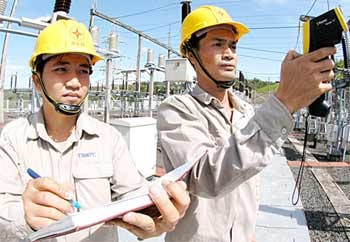
Given the present situation, the Ministry has asked relevant agencies not to increase petrol and oil prices and said they should instead use the price mobilization fund to make up for losses if any.
“In the event the world prices of petrol and oil suddenly soar, leading domestic providers must report it to the ministry for resolution,” said Mr. Hieu.
High trade deficit discussed
The meeting also discussed the country’s trade deficit, which ran US$3.5 billion in the first quarter, accounting for 25 percent of total export turnover – 20 percent higher than the original target.
Explaining the deficit, Industry and Trade Deputy Minister Nguyen Thanh Bien said the period saw the county importing gold, which pushed up the total value of imports, while total export earnings declined due to a $1.2 billion reduction of crude oil.
To meet the need of oil refineries, the country exported only 2.2 million tons of crude oil in the past three months, while in the same period last year, the figure was 4.2 million tons, he explained.
Asked by SGGP about whether such a trade deficit could be harmful to the macro-economy, Mr. Bien said it would put more pressure on the balance of imports and exports.
The country, however, once faced a much higher deficit in 2008, when the trade deficit accounted for 68 percent of the export turnover.
To step up exports and reduce the current trade deficit, PM Dung gave specific directives to all ministries and agencies on investment and public spending; how to control prices; and how to create favorable conditions for exporters.
He also ordered relevant agencies to promote domestically produced goods, develop supporting industries, and improve efficiency in use of official development assistance (ODA).
